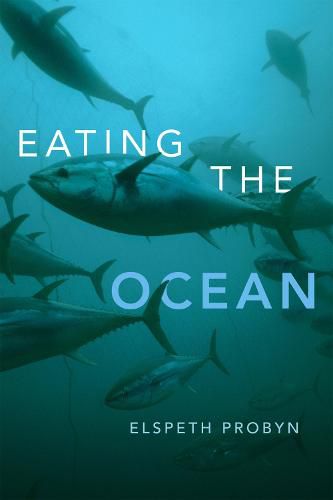Readings Newsletter
Become a Readings Member to make your shopping experience even easier.
Sign in or sign up for free!
You’re not far away from qualifying for FREE standard shipping within Australia
You’ve qualified for FREE standard shipping within Australia
The cart is loading…






In Eating the Ocean Elspeth Probyn investigates the profound importance of the ocean and the future of fish and human entanglement. On her ethnographic journey around the world’s oceans and fisheries, she finds that the ocean is being simplified in a food politics that is overwhelmingly land based and preoccupied with buzzwords like local and sustainable. Developing a conceptual tack that combines critical analysis and embodied ethnography, she dives into the lucrative and endangered bluefin tuna market, the gendered politics of sustainability, the ghoulish business of producing fish meal and fish oil for animals and humans, and the long history of encounters between humans and oysters. Seeing the ocean as the site of the entanglement of multiple species-which are all implicated in the interactions of technology, culture, politics, and the market-enables us to think about ways to develop a reflexive ethics of taste and place based in the realization that we cannot escape the food politics of the human-fish relationship.
$9.00 standard shipping within Australia
FREE standard shipping within Australia for orders over $100.00
Express & International shipping calculated at checkout
In Eating the Ocean Elspeth Probyn investigates the profound importance of the ocean and the future of fish and human entanglement. On her ethnographic journey around the world’s oceans and fisheries, she finds that the ocean is being simplified in a food politics that is overwhelmingly land based and preoccupied with buzzwords like local and sustainable. Developing a conceptual tack that combines critical analysis and embodied ethnography, she dives into the lucrative and endangered bluefin tuna market, the gendered politics of sustainability, the ghoulish business of producing fish meal and fish oil for animals and humans, and the long history of encounters between humans and oysters. Seeing the ocean as the site of the entanglement of multiple species-which are all implicated in the interactions of technology, culture, politics, and the market-enables us to think about ways to develop a reflexive ethics of taste and place based in the realization that we cannot escape the food politics of the human-fish relationship.